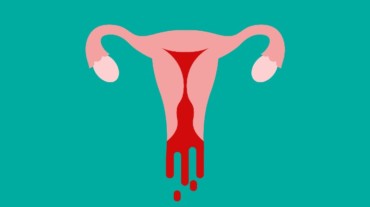Experiencing bleeding after intercourse can be worrying for many women, but it is important to understand that it may not always be a medical emergency. In some cases, spotting or bleeding after sex may be due to relatively benign causes. However, if it occurs repeatedly or unexpectedly, it is important to seek medical attention to rule out any serious underlying conditions. Here are some common causes of bleeding after sex, highlighting possible factors and when to seek professional advice.
Health Shots spoke to Dr. Ritu Sethi (Gynecologist & Obstetrician) – Director, The Aura Specialty Clinic Gurgaon and Senior Consultant to know what causes bleeding after coitus. Dr Sethi explains, “It is normal to have a small amount of spotting and it is okay if it happens occasionally or at unusual times. But if bleeding occurs more than once after sex, then it is a sign for you to get tested.

Also Read: Do You Feel Jittery After Sex? Dr. Cuteras tells you why
Here are some common causes of bleeding after sex
1. Vaginal dryness
Dr. Sethi explains that a common reason for bleeding after intercourse is vaginal dryness. Vaginal dryness refers to a condition where the vagina lacks sufficient lubrication, causing friction and irritation during intercourse. This can result in the lining of the vagina being sensitive, potentially leading to bleeding after sex.
Vaginal dryness is often associated with hormonal changes, especially during menopause, when estrogen levels drop. Other factors such as breastfeeding, certain medications, stress, or certain medical conditions may also contribute to the problem. Using a water-based lubricant during intercourse can reduce discomfort and reduce the chance of bleeding due to vaginal dryness.
2. Sexually Transmitted Infections (STIs)
Sexually transmitted infections (STIs) can also be a cause of bleeding after intercourse. Certain infections such as chlamydia, gonorrhea, trichomoniasis, and herpes can cause inflammation of the cervix, known as cervicitis. During sexual activity, the cervix may become irritated, which can lead to bleeding.
Practicing safe sex and getting regular STI testing is essential, especially if engaging in sexual activity with new or multiple partners. Early detection and treatment of STIs can prevent complications such as cervicitis and reduce the chance of bleeding after coitus.

3. Bacterial vaginosis or yeast infection
Vaginal infections, such as bacterial vaginosis and yeast infections, can cause inflammation and irritation of the vaginal tissues. This irritation can result in bleeding after intercourse.
Bacterial vaginosis is characterized by an overgrowth of harmful bacteria in the vagina, while yeast infection is caused by an overgrowth of yeast. Common symptoms of these infections include abnormal discharge, itching, burning, and a fishy odor. Seeking medical treatment for these infections can help reduce symptoms and prevent bleeding during sex.
4. Cervical cancer
Although it is less common, cervical cancer can be a more serious cause of bleeding after sex. Cervical cancer is an abnormal growth of cells in the cervix, and bleeding during or after intercourse is one of the primary symptoms.
Early detection of cervical cancer is important for successful treatment and positive prognosis. Regular screenings such as Pap smears are recommended, especially for women age 30 and older. These screenings can detect abnormal cervical changes early, allowing for timely intervention and reducing the risk of postcoital bleeding due to cervical cancer.

Remember, open communication with a health care professional is essential to addressing any concerns and ensuring that your reproductive health remains in good shape.

Source link: sensationsix.com
Source link: www.healthshots.com

Comments
Post a Comment